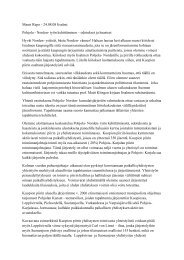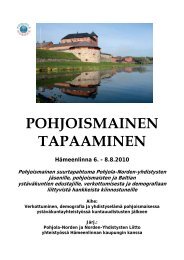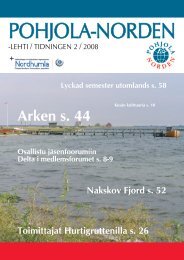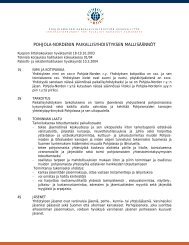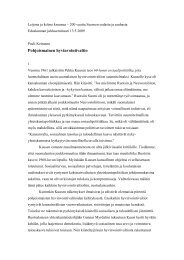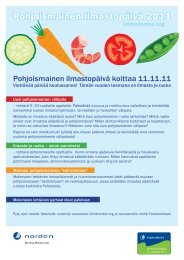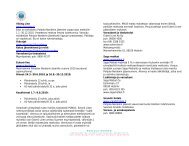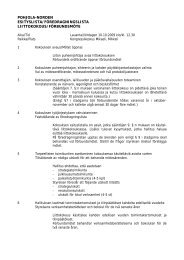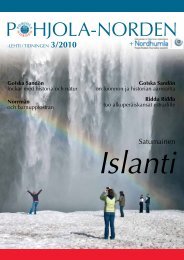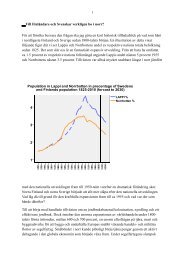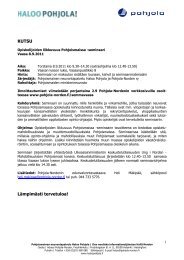The Nordic Model - Embracing globalization and sharing risks
The Nordic Model - Embracing globalization and sharing risks
The Nordic Model - Embracing globalization and sharing risks
You also want an ePaper? Increase the reach of your titles
YUMPU automatically turns print PDFs into web optimized ePapers that Google loves.
1.6 AN EFFECTIVE WAGE BARGAINING PROCESS<br />
IS ESSENTIAL<br />
<strong>The</strong> parties on the labour market can contribute towards the<br />
reforms needed to adapt the <strong>Nordic</strong> model to its challenges, particularly<br />
by introducing a more effective process of wage bargaining.<br />
Experiences from Denmark <strong>and</strong> Sweden demonstrate that a<br />
continued role for collective agreements can go h<strong>and</strong> in h<strong>and</strong> with<br />
quite individualized wage setting.<br />
<strong>The</strong> role of collective agreements could be reduced to the<br />
following tasks, which are of great importance: First, they should<br />
continue to impose industrial peace, while leaving much of the<br />
negotiations over pay to the local level. Second, central organizations<br />
need to agree on certain general conditions, notably those<br />
concerning overall working times. Third, the organizations may<br />
define rules or boundary conditions for local wage setting.<br />
We believe that there are strong reasons for individualized<br />
wage setting, which would deserve more attention also in the case<br />
of Finl<strong>and</strong>: <strong>The</strong> organization of production has changed in ways<br />
which give a premium to incentives <strong>and</strong> flexibility, differently from<br />
the days of Taylorist organization. Economic shocks are increasingly<br />
firm-specific rather than general, <strong>and</strong> they therefore call<br />
for adjustment within firms. <strong>The</strong> need for flexible wage setting is<br />
also related to the large possibilities for outsourcing of particular<br />
functions <strong>and</strong> tasks. Experience in Sweden <strong>and</strong> Denmark suggests<br />
that decentralized wage formation increases wage dispersion<br />
somewhat, while reducing wage drift. On balance we think that<br />
macroeconomic stability <strong>and</strong> comprehensive social protection have<br />
changed the environment of the labour market in ways which both<br />
underline the importance of more decentralized wage setting <strong>and</strong><br />
ensure that its consequences should be less of a concern from the<br />
point of view of workers.<br />
Collective agreements<br />
will remain important,<br />
but labour market organizations<br />
should reconsider<br />
their role<br />
<strong>The</strong> world has<br />
changed in ways<br />
which require <strong>and</strong><br />
justify a more decentralized<br />
wage setting<br />
process – also in Finl<strong>and</strong><br />
24 · <strong>The</strong> <strong>Nordic</strong> <strong>Model</strong>





